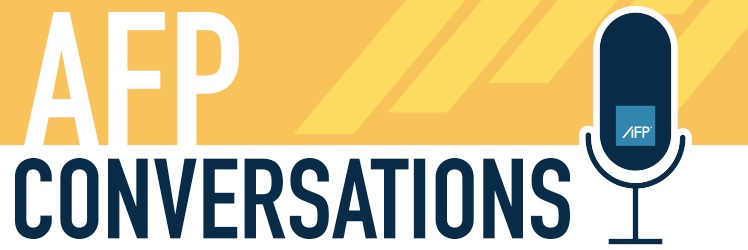AFP Conversations Podcast

Fostering Collaboration to Drive Team Performance
Dr. Ivan Joseph shares strategies for fostering collaboration and building community within teams. Don't miss his session at AFP 2019 in Boston
Subscribe With iTunes Subscribe With Google Play Subscribe on Tunein Subscribe on Stitcher

